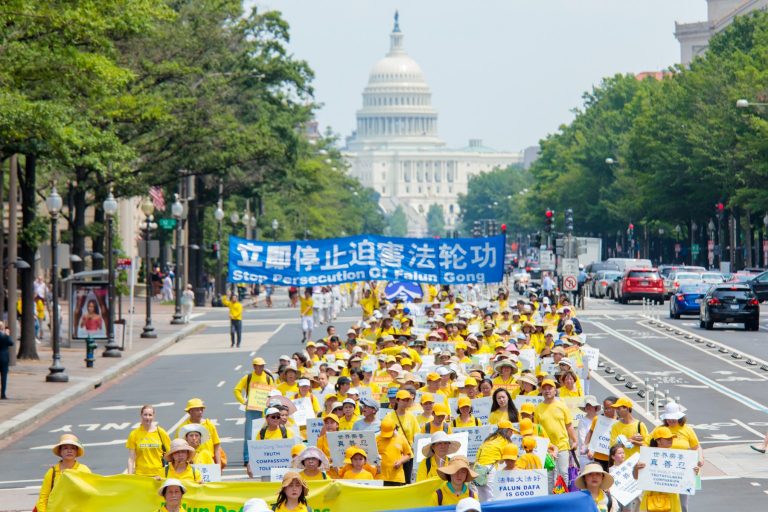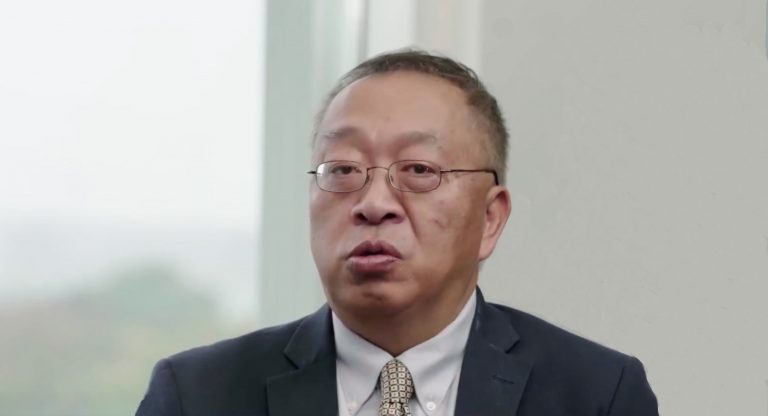The U.S. Department of State has sanctioned multiple foreign officials for their roles in politically motivated extrajudicial killings and severe violations of religious freedom, including the persecution of Falun Gong, the agency announced in the morning of Thursday, Dec. 10.
The designation, made on International Human Rights Day, Dec. 10, applies to 17 individuals, including the officials and their immediate family members, and prohibits them from entering the United States.
Salvadoran and Jamaican officials named in U.S. Secretary of State Mike Pompeo’s press release had committed summary executions, such as that of Dr. Begoña García de Arandigoyen, who was murdered in 1990 by a death squad in the El Salvador civil war.
Six officers in the Jamaican Constabulary Force Crime Management Unit were designated by the State Department as having committed four extrajudicial killings in 2003, and sanctioned.
The State Department also sanctioned Chinese police official Huang Yuanxiong for being involved in Communist China’s brutal decades-long persecution of the Falun Gong spiritual practice. Huang’s wife is included in the designation.
Success
You are now signed up for our newsletter
Success
Check your email to complete sign up
Huang, of the Wucun Village Public Security station in Xiamen City, southeastern China, was “associated with particularly severe violations of religious freedom of Falun Gong practitioners, namely his involvement in the detention and interrogation of Falun Gong practitioners for practicing their beliefs,” according to the State Department.
It is the first time the U.S. has targeted a Chinese official for the persecution of Falun Gong.

“Today’s actions underscore our support for human rights and our commitment to justice for victims and promoting accountability for perpetrators,” Pompeo stated in the release.
Falun Gong, also known as Falun Dafa, is a traditional Chinese meditative discipline that spread widely in China during the 1990s. Up to 100 million people had taken up the practice by the time the Chinese Communist Party banned it in 1999.
Stepping up sanctions on Communist China
Human rights groups estimate that in the 20 years since the beginning of the anti-Falun Gong campaign, millions of adherents have been arrested and held in prisions, labor camps, and reeducation centers, where they often face torture, forced labor, and other forms of abuse. Sarah Cook, of U.S. human rights research group Freedom House, believes that the persecution of Falun Gong served as the “playbook” for Beijing’s recent repression of Muslims in the Xinjiang region.
Experts have also determined that imprisoned Falun Gong practitioners are the primary source of organs in China’s lucrative transplant industry, with victims murdered in hospitals and labelled as voluntary donors.
The Chinese Communist Party devotes considerable resources to “handling” Falun Gong. In 2015, an article in the state-run People’s Daily praised Huang Yuanxiong for being able to do his job 12 hours a day, comparing his routine to that of a monk.
U.S. authorities under the Trump administration have toughened their stance on Beijing in recent years, placing sanctions and other restrictions on CCP officials and companies for their malign activity and human rights abuses.
On Dec. 7, the U.S. sanctioned 14 members of China’s regime-controlled legislature for their roles in passing the National Security Law that has damaged Hong Kong’s autonomy and political freedoms. The move added to sanctions this summer targeting first Hong Kong police personnel, then more senior officials. These included Hong Kong chief executive Carrie Lam and Zhang Xiaoming, a powerful CCP official long tasked with enforcing Beijing’s control over the former British colony.
An ‘early warning’

According to China researcher Larry Ong, the State Department’s decision to sanction Huang Yuanxiong suggests that the Trump administration is sending an “early warning” to those responsible for the persecution of Falun Gong.
“If Hong Kong is any indication, the Trump administration is likely to work its way up the ranks with its sanctions on Falun Gong persecutors,” Ong told Vision Times. The senior analyst at China political risk consultancy SinoInsider noted that recent sanctions on CCP officials have reached the sub-national level, or one rung below Chinese leader Xi Jinping.
Falun Gong is a particularly sensitive issue for the Chinese regime due to the moral outrage from the persecution; as well as the political ramifications of the campaign, which was masterminded and launched by former Party head Jiang Zemin.
“Many senior officials in the CCP’s security and propaganda apparatus have had a hand in the persecution of Falun Gong by way of their factional ties to Jiang,” Ong said. He gave the example of Guo Shengkun, a subnational-level official and an ally of the former leader who currently directs the CCP’s organization overseeing China’s police, courts, and procuratorates.
Follow us on Twitter or subscribe to our email list













